A multiplicity of factors has led to an ever-growing number of individuals in crisis and living in cars or on the street, including many working people who cannot afford our city’s high housing costs. A lack of meaningful coordination among government agencies and a focus on criminalizing people who live on the street have converged to disproportionately affect people of color, particularly African Americans. LA’s 2020 count of unhoused persons showed another rise in numbers year over year. And the 2020 count was conducted before the coronavirus pandemic hit. Even with mortgage relief and protection from eviction, the problem could worsen significantly as the pandemic rages and businesses close.
One of Los Angeles County’s largest social services agencies, The People Concern, formed in 2016 in a merger of two trusted social service organizations: Ocean Park Community Center (OPCC, an ally long supported by our congregation) and LAMP Community. Informed by more than 57 years of work in the community, The People Concern provides, and advocates for, evidence-based solutions to the multi-faceted challenges of homelessness and domestic violence. A fully integrated system of care – including outreach, interim housing, mental and medical health care, substance abuse services, domestic violence services, life skills and wellness programs, and permanent supportive housing – is tailored to the unique needs of homeless individuals, survivors of domestic violence, challenged youth, and many others who have nowhere else to turn.
UUSM’s Generous Congregation supports our church community. And together, we uplift the reach and impact of vital organizations doing work we could not do on our own. This month, half of our Sunday offerings will go to The People Concern. Your support will help one of Los Angeles County’s largest social service agencies empower the most vulnerable among us to rebuild their lives.
Please consider supporting the mission of our church, and the great work of The People Concern. To give right now, text “$10 GCC” to 844-982-0209. (One-time-only credit card registration required.)
Darwin Day: A Declaration of Interdependence
FEBRUARY FREETHINKER FORUM
Special AAHS Freethinker Forum—Sunday, February 28, 3:00 to 5:00 pm
In February, science enthusiasts along with humanist and liberal religious groups sometimes celebrate the birthday of Charles Darwin to commemorate and reflect on the legacy of his incredible discovery and what it means to our world.
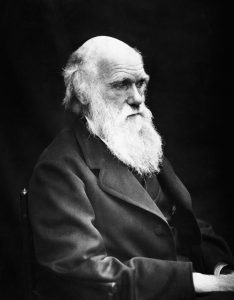
UUSM’s Agnostics, Atheists, Humanists and Secularists (AAHS) group will host a special AAHS Freethinker Forum for Darwin Day (note the later start time) this month. We’ll view and discuss a video presentation by the Rev. Dr. David Breeden, Senior Minister of
First Unitarian Society of Minneapolis, a Unitarian Universalist congregation originally founded in the late 1800s by a group of people wanting to read and understand Darwin’s work. David asks us to consider how “Darwin’s dangerous idea” interrupted what Western societies had long believed about “the great chain of being,” and how evolution by natural selection continues to both challenge and inspire us.
Darwin’s discovery paved the way for a new understanding of what some might call a sacred or meaningful connection to the natural universe, embodied in the 7th UU Principle: “Respect for the interdependent web of all existence, of which we are a part.” Indeed, the legacy of natural selection on the development and evolution of liberal religion in the past 150 years has been profound, and may be under-appreciated. Writing in
UU World, the late Rev. Dr. William Murry, former president of Meadville-Lombard Theological school, ruminated:
“I believe that evolution by natural selection is one of the most important insights not only in the history of science but in the history of the world because it has radically changed our traditional Western understanding of how we came to be, what we are, and of our place in the world. However, just as it took several hundred years for the full implications of Copernicus’s discovery to be felt, so also all the implications of Darwin’s idea have not yet become fully apparent…
Despite the great variety of life forms that have evolved over the millennia, the awareness, rooted in evolutionary biology, of the kinship of all living organisms leads us to regard all human beings as members of one extended family. The spiritual implication of this realization is that we should live together in love and caring, be tolerant of our differences, and take responsibility for one another…
Darwin’s idea also fosters a deeper, nature-centered spirituality by shifting the focus away from the supernatural to nature itself—its amazing fecundity and diversity and the remarkable process Darwin called natural selection and descent with modification. In a post-Darwinian world, emotions such as awe and wonder and reverence evoked by the natural world are often identified as religious emotions. A natural spirituality is the result…
Every religion needs a story, and Darwin’s idea has given us a place in a new story with multiple layers of meaning. That story, the great epic of cosmic and biological evolution, is a religious story because it calls us out of our little self-centered worlds to see ourselves as part of a great living system. It gives a larger meaning and a broader ethic to our lives. As Darwin wrote at the end of The Origin of Species: ‘There is grandeur in this view of life.'”
I’ve thought a great deal about the nexus of science and spirituality since becoming involved with Unitarian Universalism and Humanism. Some of these ideas formed the foundation of two summer sermons about Darwin, Cosmology, and Religious Naturalism that I was privileged to give at UUSM in 2018 and 2019.
In this age, as we struggle with the near-term challenge of the COVID-19 pandemic and the long-term threat of the climate crisis, it seems that fostering a closer and deeper connection to the interconnected web of nature and life could not be of more vital importance.
All are welcome! Join us at
3:00 for a lively discussion where a diversity of views is welcome and respected! Email
aahs@uusm.org for the Zoom link.
AAHS (Agnostics, Atheists, Humanists and Secularists) is part of UUSM’s lifespan learning for adults and a member group of the
UU Humanist Association. Keep current on future discussions and events via our
Facebook Group.
Join Us for Beloved Conversations: Virtual!

A few months ago, the UUSM Board of Directors authorized our Intersectional Anti-Racism and Anti-Oppression Commission to begin laying the foundation for us to more effectively engage with this critical work. Our first programmatic offering is Beloved Conversations. This faith-formation, anti-racism program offered by the Unitarian Universalist seminary in Chicago, Meadville Lombard Theological School, went virtual last fall and more than 1,200 learners joined the first phase. UUSM is all-in for for the spring semester! This experience of connection and spiritual development is not to be missed.
The Spring Term
registration closes on February 26, and classes begin March 16, with lessons published every two weeks, as well as biweekly small-group check-ins and monthly large group worship and discussion. In the program’s current phase, ‘Within,’ we engage with a personal exploration of race and our work for racial justice. With two caucuses, our white participants are invited into the Un/learning for Liberation course and our BIPOC+ (Black, Indigenous, and People of Color) participants are invited into the Gathering Ourselves course. In Beloved Conversations, we are here to heal the impact of racism on our lives. Learn more at
meadville.edu/beloved. The program and our church have full and half
scholarships available for those who need them, so please don’t let the cost be an obstacle to your participation.
Beloved Conversations—the signature offering of The Fahs Collaborative at Meadville Lombard Theological School—is a program for Unitarian Universalists seeking to embody racial justice as a spiritual practice. In Beloved Conversations, we seek to “get free together.” The program is now offered online and members of our community can study and reflect together in the two separate groups for white and BIPOC Unitarian Universalists to process their unique experiences with racial identity, white supremacy, and racial justice.
I want to offer a special thanks to those who stepped up to help advise and lead UUSM’s commission in this tumultuous period of our history: Susan Hendricks Richman, Edna Bonacich, Nalani Santiago, Mike Monte, Linda Van Ligten, James Witker, and Cleo Anderson. Collectively, these leaders bring considerable experience and expertise to this ministry of liberation.
How is the program structured?
Work in both groups will include six, bi-weekly, online lessons, done at your own pace, using videos, music, and readings, accompanied by reflection prompts and suggested conversations with a Critical Friend chosen by the participants; six bi-weekly small group conversations in a Learning Pod; and three larger, monthly, facilitated Meaning-Making Sessions on Zoom.
This curriculum does not require you to sign up as part of a larger congregation or community. However, if you choose, you can agree to engage the curriculum with folks you are already in relationship with from your congregation or community. We hope you will sign up for the work with members in our Santa Monica Community.
PLEASE NOTE: This is a virtual learning opportunity. Basic skills with email, simple websites, and the online meeting platform Zoom are essential to successful participation in this program.
What are the important dates for Spring Term 2021?
February 26: Registration closes for the Spring Term. Once you register and pay, a Welcome & Orientation Lesson will be available on the learning platform.
March 16: The first Lesson drops onto the learning platform for individual study and reflection at your own pace (followed approximately every two weeks by Lessons 2-6, through the end of May/beginning of June).
Ongoing: Small Group Learning Pod gatherings, approximately every two weeks, as scheduled by your Pod.
Meaning Making Sessions Participants will choose one date/time to attend for each of three sessions. If you cannot attend a Session live, they will be partially recorded and posted to the learning platform for later viewing.
BIPOC Meaning Making Sessions (Open to all BIPOC participants): Thursdays 5:00 to 6:30 pm Pacific Time or Saturdays 11:00 am to 12:30 pm.
White Folks Meaning Making Sessions: (Open to all white participants): Wednesdays 12:00 to 1:30 pm Pacific Time or Wednesdays 5:00 to 6:30 pm or Saturdays 11:00 am to 12:30 pm.
How much does it cost?
NOTE: Prices are per Term—Fall Term and Spring Term will have different content. You may complete one or both but we are only registering folks for Spring Term 2021 right now.
Sliding Scale Pricing (ages 18+):
-
$250 US dollars per person
-
$300 US Dollars per person*/**
-
$350 US dollars per person**
Full and partial scholarships are available for those who need them (see more info below)
*Reparations Note: White participants with the means to do so are encouraged to consider paying an additional $50, in recognition of the historic legacy of racist economic policies and the ways in which generational wealth and greater access to economic opportunity have privileged white people as a group for hundreds of years. These extra funds will go towards providing scholarships to those who need it to participate in this program.
**Interdependence Note: Regardless of your racial identity, if your class privilege and/or professional expense budget allows you to pay more so that others may pay less, please consider adding an additional contribution to your total. These extra funds will go towards providing scholarships to those who need it to participate in this program.
Equity Note: Regardless of your racial identity, full and partial scholarships are available to those who need them. No one will be turned away for lack of funds. Please contact us at belovedconversations@meadville.edu before registering, to request a scholarship. You may also request a full or half scholarship from the church.
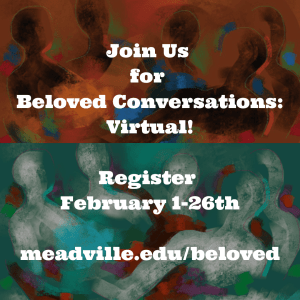 How do I register?
How do I register?
If you are registering and paying for yourself, there are four steps to signing up:
Step 1: Go to
www.meadville.edu/beloved to read more about the program. When you have all of the information you need, click the link to our registration page.
Step 2: You will register through the curriculum website Teachable for the course that aligns with your racial identity (Gathering Ourselves for BIPOC or Un/Learning for Liberation for white folks). This will include signing up with your name and email address and paying with a credit card or coupon code (or both).
Step 3: Once you register and pay, you will be directed to a Google Form we will use to collect the rest of the information we need from you. YOU ARE NOT CONSIDERED REGISTERED FOR THIS PROGRAM UNTIL YOU HAVE COMPLETED THIS GOOGLE FORM.
I hope you’ll consider taking advantage of this wonderful opportunity to join in this transformative work!
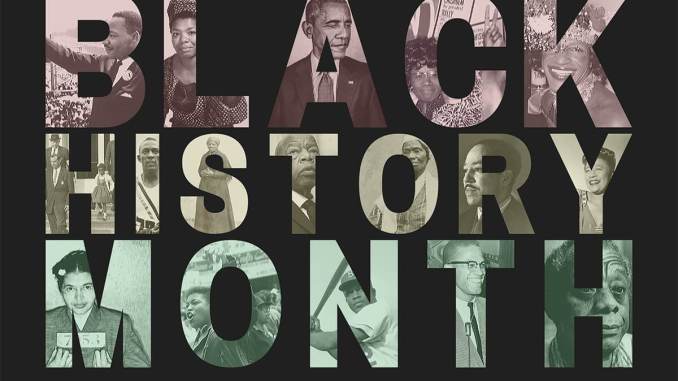

 Our practice here at UUSM is to dedicate half of our non-pledge Sunday offerings to organizations doing work in the world that advances our Unitarian Universalist principles; the other 50% of the offering is used to support the life of our church.
Our practice here at UUSM is to dedicate half of our non-pledge Sunday offerings to organizations doing work in the world that advances our Unitarian Universalist principles; the other 50% of the offering is used to support the life of our church.

 UUSM’s Agnostics, Atheists, Humanists and Secularists (AAHS) group will host a special AAHS Freethinker Forum for Darwin Day (note the later start time) this month. We’ll view and discuss a video presentation by the Rev. Dr. David Breeden, Senior Minister of First Unitarian Society of Minneapolis, a Unitarian Universalist congregation originally founded in the late 1800s by a group of people wanting to read and understand Darwin’s work. David asks us to consider how “Darwin’s dangerous idea” interrupted what Western societies had long believed about “the great chain of being,” and how evolution by natural selection continues to both challenge and inspire us.
UUSM’s Agnostics, Atheists, Humanists and Secularists (AAHS) group will host a special AAHS Freethinker Forum for Darwin Day (note the later start time) this month. We’ll view and discuss a video presentation by the Rev. Dr. David Breeden, Senior Minister of First Unitarian Society of Minneapolis, a Unitarian Universalist congregation originally founded in the late 1800s by a group of people wanting to read and understand Darwin’s work. David asks us to consider how “Darwin’s dangerous idea” interrupted what Western societies had long believed about “the great chain of being,” and how evolution by natural selection continues to both challenge and inspire us.
 How do I register?
How do I register?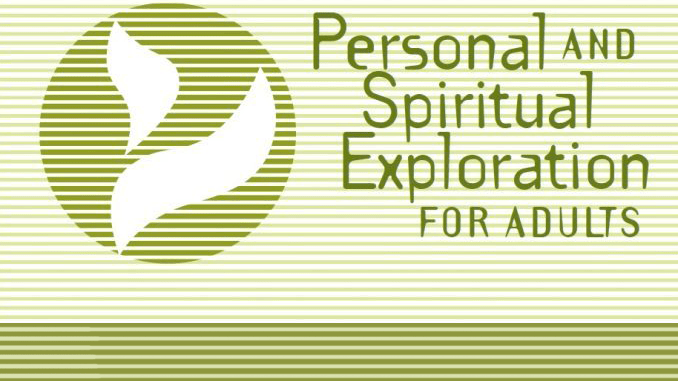
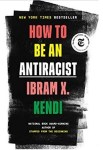 How to be an AntiracistThis winter, the Faith In Action: Peace & Social Justice Committee offers another opportunity to read and discuss Dr. Ibram X. Kendi’s “How to Be an Antiracist.” Last year’s acclaimed New York Times #1 Bestseller was our guide for several sessions of provocative, important learning and dialogue in early 2020. In the time since, our country has been roiled by more violence, protests, and a renewed call to confront systemic racism. And this instructive volume has solidified its place as something of a “common read” to understand both racism and anti-racism today. Kendi, a professor of history and international relations and founder of the Antiracist Research and Policy Center at American University, argues that a redefinition of terms — focusing on policies rather than attitudes and feelings — is in order if we are to properly confront the historical legacy and enduring oppressive systems of racism. The Peace & Social Justice Committee undertakes study groups such as this to help us grow in knowledge and understanding, which helps us to bear witness and work for change as part of our congregation’s commitment to UU Principles. Facilitated by James Witker, Faith In Action Co-Chair. Contact justice@uusm.org for dates and Zoom link.
How to be an AntiracistThis winter, the Faith In Action: Peace & Social Justice Committee offers another opportunity to read and discuss Dr. Ibram X. Kendi’s “How to Be an Antiracist.” Last year’s acclaimed New York Times #1 Bestseller was our guide for several sessions of provocative, important learning and dialogue in early 2020. In the time since, our country has been roiled by more violence, protests, and a renewed call to confront systemic racism. And this instructive volume has solidified its place as something of a “common read” to understand both racism and anti-racism today. Kendi, a professor of history and international relations and founder of the Antiracist Research and Policy Center at American University, argues that a redefinition of terms — focusing on policies rather than attitudes and feelings — is in order if we are to properly confront the historical legacy and enduring oppressive systems of racism. The Peace & Social Justice Committee undertakes study groups such as this to help us grow in knowledge and understanding, which helps us to bear witness and work for change as part of our congregation’s commitment to UU Principles. Facilitated by James Witker, Faith In Action Co-Chair. Contact justice@uusm.org for dates and Zoom link. To remind our participants, this is a continuation of the full and closed group: “Increase your ability to follow-through and achieve success with New Year Resolutions in our New Year Resolution Workshop, a 3-session workshop on Zoom. The New Year is the time we typically set out our list of things we want to do, change, see, and accomplish. If you’ve had problems keeping those resolutions in the past, this workshop is where you want to start. Over the course of three sessions, Norm Richey, MSW, and Certified Life Coach will introduce you to new skills that will help you achieve your resolution and goals for 2021.” The class will continue on February 3, from 7:00 – 8:30 pm.
To remind our participants, this is a continuation of the full and closed group: “Increase your ability to follow-through and achieve success with New Year Resolutions in our New Year Resolution Workshop, a 3-session workshop on Zoom. The New Year is the time we typically set out our list of things we want to do, change, see, and accomplish. If you’ve had problems keeping those resolutions in the past, this workshop is where you want to start. Over the course of three sessions, Norm Richey, MSW, and Certified Life Coach will introduce you to new skills that will help you achieve your resolution and goals for 2021.” The class will continue on February 3, from 7:00 – 8:30 pm. Come and join us in observing, learning about, and enjoying nature. Whether you are spending some time outdoors or not stepping out your front door at all, you can still enjoy and appreciate nature. You are welcome to join even if you have no knowledge of nature, botany, drawing, or writing. In our upcoming nature journaling session we will investigate birds. We will work from photographs and reflect on their place in our lives and our world. The nature journaling group has been meeting monthly to contemplate, write about, and draw various aspects of nature. It is a way to slow down and come to a deeper appreciation of the world around us. No knowledge, skill, or experience is necessary and new participants are always welcome. People who attend these groups remark that they are reminded of times in childhood when they had the time to get lost in wonder at the natural world. As adults, we rarely give ourselves that permission. We will meet from 2:30 – 4:00 pm. Contact: Dorothy Steinicke.
Come and join us in observing, learning about, and enjoying nature. Whether you are spending some time outdoors or not stepping out your front door at all, you can still enjoy and appreciate nature. You are welcome to join even if you have no knowledge of nature, botany, drawing, or writing. In our upcoming nature journaling session we will investigate birds. We will work from photographs and reflect on their place in our lives and our world. The nature journaling group has been meeting monthly to contemplate, write about, and draw various aspects of nature. It is a way to slow down and come to a deeper appreciation of the world around us. No knowledge, skill, or experience is necessary and new participants are always welcome. People who attend these groups remark that they are reminded of times in childhood when they had the time to get lost in wonder at the natural world. As adults, we rarely give ourselves that permission. We will meet from 2:30 – 4:00 pm. Contact: Dorothy Steinicke. Come and play ukulele with us or join with another strumming instrument. We recommend a familiarity with the ukulele for this online format but all levels are welcome (beginner to advanced). Bring a ukulele to our Zoom meeting and chords and lyrics will be provided in advance with a few folks prepared to lead some songs. We will share tips and support each other, pulling from a wide range of music. We will need your email contact information by February 10, so that we can send you the music ahead of time. This event is for ages 15 and up, or 10 and up if accompanied by a guardian. We will gather from 9:30 – 10:45 am. Contact: Kim Kalmanson.
Come and play ukulele with us or join with another strumming instrument. We recommend a familiarity with the ukulele for this online format but all levels are welcome (beginner to advanced). Bring a ukulele to our Zoom meeting and chords and lyrics will be provided in advance with a few folks prepared to lead some songs. We will share tips and support each other, pulling from a wide range of music. We will need your email contact information by February 10, so that we can send you the music ahead of time. This event is for ages 15 and up, or 10 and up if accompanied by a guardian. We will gather from 9:30 – 10:45 am. Contact: Kim Kalmanson. We will discuss “Spying on Whales: The Past, Present, and Future of Earth’s Most Awesome Creatures,” by Nick Pyenson. It is easy to be awed by whales, but studying them in their habitat isn’t easy. Pyenson has been doing just that – and looking at the fossil record as well. Grey whales have been stranding along our coast in unusual numbers recently. To receive the link to join the discussion, you will want to be on the group email list. All are welcome. We meet from 7:30 – 9:00 pm. Contact: Rebecca Crawford, sci-nonfiction@uusm.org.
We will discuss “Spying on Whales: The Past, Present, and Future of Earth’s Most Awesome Creatures,” by Nick Pyenson. It is easy to be awed by whales, but studying them in their habitat isn’t easy. Pyenson has been doing just that – and looking at the fossil record as well. Grey whales have been stranding along our coast in unusual numbers recently. To receive the link to join the discussion, you will want to be on the group email list. All are welcome. We meet from 7:30 – 9:00 pm. Contact: Rebecca Crawford, sci-nonfiction@uusm.org. Open Meditation - Mondays, February 8 and 22
Open Meditation - Mondays, February 8 and 22